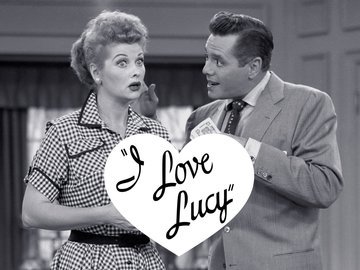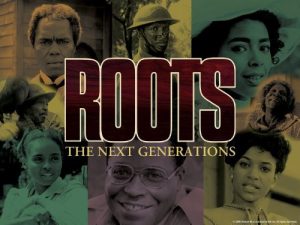Winner of the Fall 2016 StMU History Media Awards for
Best Explanatory Article
Most Captivating/Engaging Article
Best Use of Multiple Images
Best Introductory Paragraph
Best Overall Research
“Lucy, you got some splainin’ to do!” These words were heard by families across America repeatedly in the 1950s. Uttered in a thick Latin accent by none other than Ricky Ricardo, the bongo playing, bandleader, Cuban husband of the flighty, redheaded, Lucy Ricardo on the 1950s television situation comedy, I Love Lucy. This popular television comedy entered the homes of people across America in the years 1951 to 1957. In the six-year span that the show was on the air, it never ranked lower than third nationally among television programs.1 So the question arises: what was it about this show that was so popular among the families in America? The answer to that is simple. I Love Lucy told the tale of a common housewife who dreamed of more than cooking and cleaning; she wanted to be a star. Housewives throughout America related to the character of Lucy Ricardo who longed for more in life, in the period of American history that has been called The Affluent Society.

Lucille Ball was born in Celoron, New York in 1911 to a family who believed that hard work was needed to achieve success. She found work in movies and on the radio, and had a recurring role on the hit CBS radio show, My Favorite Husband.2 Desi Arnaz was born in Santiago de Cuba, Cuba in 1917 to a wealthy family. His father was a politician and landowner and his mother was an heiress. The Revolution of 1932 in Cuba hit the Arnaz family hard, and they were ultimately forced to move to Miami, Florida.3 Arnaz met Ball in 1940. The two immediately connected with one another, and after a five-month whirlwind romance, the couple was married.
However, the marriage was rocky from the start, and it did not help that Ball was forced to stay home due to her acting and radio career, while Arnaz toured with his band. When the director of My Favorite Husband offered Ball the opportunity to take the show to the new medium of television, she jumped at the chance on the one condition that Arnaz be cast for the role of her on-screen husband. Ball was looking for a way to save her marriage, and she believed that working with Arnaz and having him close to home was the way to do it. CBS was hesitant to agree to her request, but they wanted Ball so they decided to film a pilot for the show.4 With her hardworking, no-nonsense family background, Ball was determined to make the show a success. Arnaz and Ball became Lucy and Ricky Ricardo on the immediate hit television show that would run for the next six years.
Family life in the 1950s focused mostly on men working while women stayed home, kept the house, and raised children. Pediatrician Dr. Benjamin Spock published Baby and Child Care, a book that highlighted an approach to raising children that was child-centered as opposed to parent-centered. Dr. Spock viewed the role of the mother as belonging at the center of the household while the husband was the breadwinner and had very little to no interaction in raising children.5 This view began to generate dissatisfaction among women who longed for a more fulfilling life.

I Love Lucy focused on the life of Lucy Ricardo, a ditzy housewife with dreams of fame and fortune, and her Cuban, bandleader husband Ricky. Lucy was far from the typical housewife; she was not satisfied with simply staying home and keeping house while her husband worked or went out with friends. She had quite the imagination and came up with schemes to break into show business, which usually caused tension between her and Ricky. Lucy brought the desires for something more that were locked away in the hearts of housewives across America, and she brought those desires out into the public eye. While she did play her role in an extremely comedic way, she somehow always returned to the dutiful housewife of the 1950s.6

Producers were not sure what the audience would make of Arnaz. He was a television first in many ways; he was the first Hispanic actor welcomed into the homes of the American people on a regular basis. It was the first time many had ever heard a Latino accent, and Arnaz did not fit the typical Hispanic stereotype that most Americans held at that time. Arnaz was handsome, smart, dignified, warm, responsible, employed, loyal, and married. The producers were also concerned about the audience viewing the Ricardo’s marriage as interracial, and this was not something that had ever before been aired openly in movies or on television. Despite these obstacles, Arnaz was treated as an equal white American, and accepted graciously throughout the nation.7

During its six-year reign, I Love Lucy ranked in the top three spots nationally among television programs. Exceptional talent in acting, comedic timing, writing, directing, editing and above all, being relatable, made I Love Lucy an instantaneous success.8 Lucille Ball accepted her role as the zany housewife, Lucy Ricardo, and ran with it. She was not afraid to put herself out there, work hard, and make her dreams come true. Housewives across America finally had a female television star that they were able to relate to; someone who knew there was more to life than cooking and cleaning. With this in mind, maybe, just maybe, they too could stand up and do something more.
- Salem Press Encyclopedia, January 2016, s.v. “I Love Lucy (TV),” by Mary Hurd. ↵
- Salem Press Encyclopedia, January 2016, s.v. “Lucille Ball,” by Richard Adler. ↵
- American National Biography (From Oxford University Press), 2010, s.v. “Desi Arnaz,” by Tinky “Dakota” Weisblat. ↵
- Gigi Anders, “’Luuu-cy!’,” Hispanic 14, no. 11 (November 2001): 44-46. ↵
- Alan Brinkley, American History: Connecting the Past Volume 2, 15 edition (New York: McGraw-Hill Education, 2014), 764. ↵
- Salem Press Encyclopedia, January 2016, s.v. “I Love Lucy (TV),” by Mary Hurd. ↵
- Gigi Anders. “’Luuu-cy!’,” Hispanic 14, no. 11 (November 2001): 43. ↵
- Salem Press Encyclopedia, January 2016, s.v. “I Love Lucy (TV),” by Mary Hurd. ↵



106 comments
Jasmine Rocha
I have always heard of the show “I Love Lucy” and how funny it was back in its day but I had never know of the social impact it had done in this world. This shows represented a new side to women especially the actress who had now embraced her character fully and to her greatest potential. This new side of women was of one that showed that women are not just housewives but they can also work. This show was a great impact when it came to empowering women who had watch the show to be more confident and empowering of their lives that gives a positive impact towards themselves and others.
Arieana Martinez
This was one of my favorite articles to read! I Love Lucy is one of my favorite shows of all time and it was refreshing to see that someone highlighted this groundbreaking show. Lucille Ball is an inspirational woman who sparked change throughout the world while inspiring women to know that they are worth more than simply staying at home and raising children. Additionally, Desi Arnaz is an inspiration to the Latin American community by showing that one should not let the color of their skin (or the accent in their voice) stop them from pursuing their dreams. This show broke through so many barriers and was very ahead of it’s time, which was greatly embodied in this article.
Daniela Duran
Certainly, it is amazing to see how the media can be used to raise our voices to something that actually would benefit society! The way in which this brave actress stood up in TV and fought to defend the position of mown ins society is very impressive. Perhaps she did not expect all the social change and impact she would cause, because form the article, it is inferable that she did this with the purpose of working with her husband; however, I am sure of the fact that once she saw what her acting and her profession could mean to American women, she loved even more what she did. It takes brave people like her to use the media, the TV, the internet and other communication forms in a positive, smart way…there are many people out there who are treated unfairly (like women in this particular case) but will not say anything until they see a leader doing so first…this is what Lucy did. I personally consider that the title of the show was perfectly suitable: “America Loves Lucy”. She truly made herself loved, not only because of the discrete way in which she demanded equality though her show, but also by the way in which she inspired women to do the same. The fact she comes from hard working family is clearly reflected in her way of fighting for what she thinks is right. No one in the team of producers believed in her ideas at the beginning, but it came to their surprise that her hard work and her confidence were amazingly successful. This article truly deserves the price it was awarded.
Alexandra Cantu
I really enjoyed reading this article! It was so captivating from the start. The title is very short and great! I have never watched I Love Lucy but after reading this article, I understand why it was such a hit. Lucy is not your typical 1950’s housewife. This of Lucy’s wittiness this will always be remembered as a classic. Congratulations on winning five awards!! woohoo!
Robert Rodriguez
I’ve heard a lot of great things about I Love Lucy but I’ve never watched it personally. while knowing that It was a popular show I was not aware just how popular Lucy really was especially to housewives. its crazy to see how the stereotypes of women developed because of shows like this also how it developed into a norm. because of its humor and Lucy’s wittiness it’ll be remembered as an American classic. great article!
Belia Camarena
I really enjoyed reading this article! It captivated me, and the title is a great play on words. Personally, I have never watched I Love Lucy. However, after reading this article, I can see why it was such a big hit. Lucy is not your typical 1950’s housewife. I imagine this must have been extremely refreshing for women watching at the time.
Caroline Bush
Great article! I remember as a kid watching re runs of I Love Lucy and finding it absolutely hilarious. Its funny because I never actually knew that Lucile Ball and Dezi Arnaz were an actual married couple in real life. I never really thought of the huge impact this show had on American culture or the barriers it was able to break. Overall I really enjoyed this article and found the topic to be very interesting.
Maria Mancha
I love Lucy is an American Classic. It was a stepping stone for creating better equality. The 50s were such a divided time and having a show like I Love Lucy set that aside. A women and Cuban man staring in a show in the 50s shows a lot.I never had really thought about the background and task it took to make this film. The article really shared interesting information about the Show and the actors behind it. I really enjoyed the article and it had great context.
Iris Henderson
The title of this article is excellent and true! I have grown up a fan of I love Lucy and enjoy it still today. The humor that Lucille Ball and Dezi Arnaz provided the nation with was timeless and pure. The fact that Dezi was very abusive to Lucille is something that does come to mind and makes me very sad. I am not sure why the author didn’t find it relevant to the article, perhaps to keep it a light hearted topic? Other than that, I really thought this was a great article.
Cristina Cabello
When I was younger, my mom and I would always watch this show together. I found it weird but also heartwarming at the same time. I really liked how you wrote this article. Then describing all the unknown facts on the making of this show. Or at least I just didn’t know these things. I think it is cool how they had a woman as a the lead in the show. It expressed that women can also be funny too.